Top 35 Account Director Interview Questions You Must Prepare
When preparing for an Account Director interview, it’s crucial to anticipate the types of questions you might be asked. Here are the top 35 interview questions you need to prepare for, divided into key categories, so you can demonstrate your experience and expertise in managing client accounts and delivering excellent results.
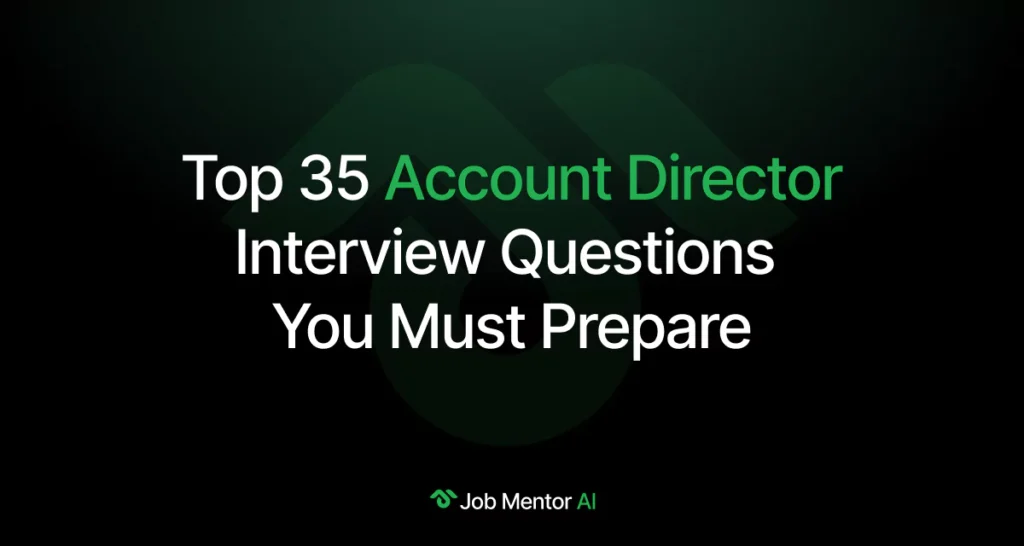
General Interview Questions for an Account Director
1. Tell us about your experience as an Account Director
2. Why do you want to work with our company as an Account Director?
3. How do you stay up-to-date with industry trends?
4. Can you describe a challenging account you’ve worked on?
5. What do you think makes a great Account Director?
Role-Specific Questions
1. How do you prioritize tasks when managing multiple accounts?
2. What tools do you use to track the performance of client accounts?
3. How do you handle underperforming accounts?
4. How do you measure the success of an account you manage?
5. How do you handle conflicts between clients and internal teams?
Technical/Tools Expertise (Role-Specific Skills)
1. What operating systems are you comfortable working with?
2. What is your experience with troubleshooting hardware issues?
3. Can you explain how DNS works?
4. What is your experience with networking?
5. How do you reset a user’s password in Active Directory?
STAR Account Director Interview Questions
1. Tell us about a time when you exceeded a client’s expectations.
2. Describe a situation where you had to overcome a significant challenge in account management.
3. Give an example of how you’ve improved a process within your team or department.
4. Tell me about a time when you managed a project under tight deadlines.
5. Describe a time when you had to change your approach to meet a client’s needs.
Behavioral and Situational Account Director Interview Questions
1. How do you handle stress in your role as an Account Director?
2. How do you handle competing priorities from different clients?
3. Tell us about a time when you disagreed with a client’s direction. How did you handle it?
4. Describe a situation where you had to build rapport with a difficult client.
5. How do you ensure client satisfaction throughout the duration of a project?
Client Relationship Management Account Director Interview Questions
1. How do you build trust with clients from the beginning?
2. How do you handle unhappy clients or complaints?
3. What steps do you take to manage client expectations effectively?
4. Tell us about a time you turned around a relationship with a dissatisfied client.
5. How do you ensure that a client’s vision is consistently reflected in your work?
Communication and Collaboration Account Director Interview Questions
1. How do you communicate complex ideas to clients who may not be familiar with technical details?
2. How do you resolve issues with a system update that causes software conflicts?
3. What steps would you take to troubleshoot slow system performance on a workstation?
4. How do you handle repeated complaints about a network outage?
5. What would you do if a user accidentally deleted important files?
Strategic and Goal-Oriented Account Director Interview Questions
1. How do you develop an account strategy that aligns with both the client’s and the company’s objectives?
2. What metrics do you use to evaluate the success of an account strategy?
3. How do you approach setting long-term goals for your accounts?
4. Tell us about a time you implemented a new strategy that significantly impacted account performance.
5. How do you adapt your strategy when an account’s goals or priorities change?
General Interview Questions for an Account Director
Kicking off the conversation with broader questions helps set the tone for the interview. These general account director interview questions reveal a candidate’s overall leadership approach and professional mindset. For an Account Director position, understanding their career journey and core values matters just as much as their resume highlights. Candidates can use AI Cover Letter Generator from JobMentorAI to create a professional and customized cover letter to further strengthen their profile. These general interview questions create space for an account director to share who they are beyond the job title.
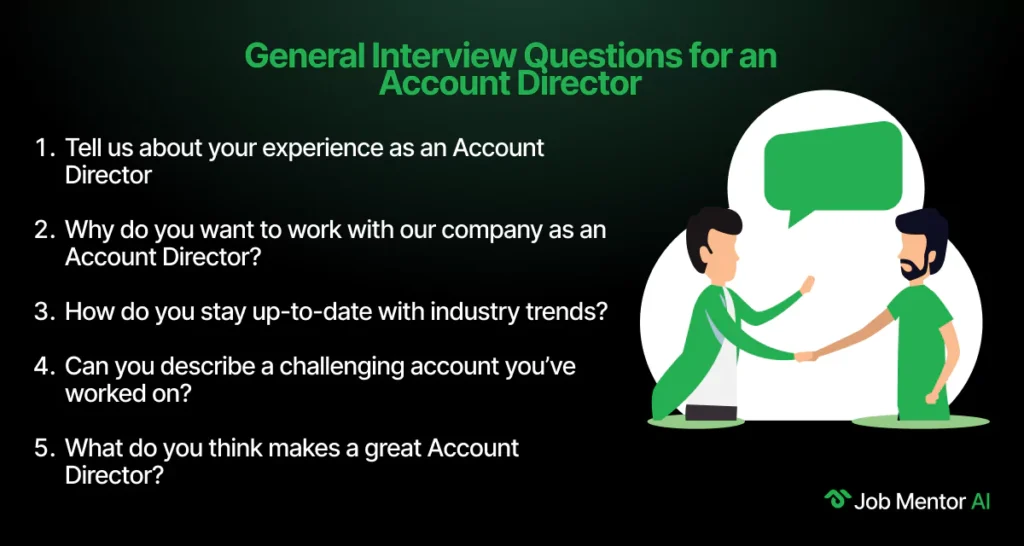
1. Tell us about your experience as an Account Director
What Interviewers Want:
Interviewers want to understand your professional journey and your fit for the role.
Strong Answer:
“I have over 8 years of experience in account management, overseeing multi-million-dollar portfolios. I’ve successfully led cross-functional teams and developed strategies that consistently improved client satisfaction and delivered significant revenue growth.”
Poor Answer:
“I’ve worked in a few companies doing similar roles, not much to share.”
2. Why do you want to work with our company as an Account Director?
What Interviewers Want:
They are looking for your motivation and how well you’ve researched their company.
Strong Answer:
“I’ve researched your company and admire your approach to client service and innovation. I believe my experience in managing high-value accounts aligns with your values, and I’m eager to contribute to the continued growth of your business.”
Poor Answer:
“I just need a job and this one looks good.”
3. How do you stay up-to-date with industry trends?
What Interviewers Want:
They want to see if you are proactive and knowledgeable about the field.
Strong Answer:
“I regularly attend industry conferences, read relevant trade publications, and participate in webinars. I also engage in online forums and discussions to share ideas and learn about new tools and strategies in the account management field.”
Poor Answer:
“I don’t really keep up with trends.”
4. Can you describe a challenging account you’ve worked on?
What Interviewers Want:
They want to understand your problem-solving skills and how you handle difficult situations.
Strong Answer:
“I worked with a client whose expectations were constantly changing. I held regular check-in meetings and set clear, measurable goals to ensure we stayed aligned. This helped us exceed the client’s expectations, resulting in a long-term partnership.”
Poor Answer:
“All my accounts have been easy to manage.”
5. What do you think makes a great Account Director?
What Interviewers Want:
They want to know your perspective on the role and what skills you value.
Strong Answer:
“A great Account Director listens actively, adapts to client needs, and ensures seamless communication. Strong leadership skills are vital for guiding teams and developing strategies that lead to client satisfaction and business growth.”
Poor Answer:
“I think anyone can be an Account Director if they try hard enough.”
Role-Specific Questions
These role-specific account director interview questions examine the essential responsibilities of an Account Director. These questions explore their methodology for client portfolio management, team leadership, and business growth strategies. Their answers should show practical experience with the day-to-day challenges of the position and how they handle the key aspects of the role.
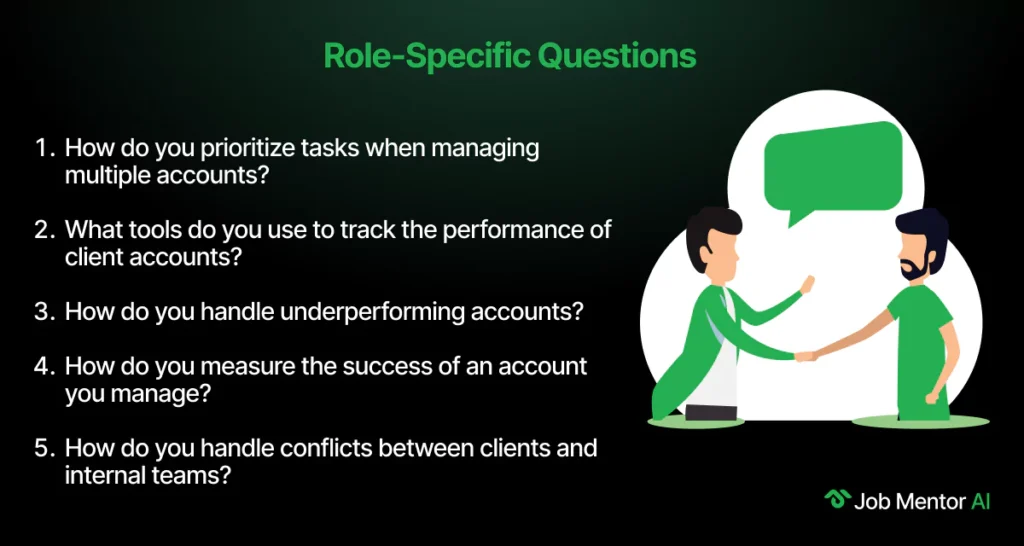
6. How do you prioritize tasks when managing multiple accounts?
What Interviewers Want:
They want to understand your time management skills.
Strong Answer:
“I assess deadlines, client needs, and potential impact. I use project management tools to organize my workflow and delegate tasks effectively. This ensures that I meet deadlines while maintaining high-quality service for all accounts.”
Poor Answer:
“I work on whatever comes up first.”
7. What tools do you use to track the performance of client accounts?
What Interviewers Want:
They want to know if you are familiar with industry tools and methods for tracking performance.
Strong Answer:
“I regularly use CRM software like Salesforce and project management tools like Trello or Asana to track account performance. I also use data analytics to assess KPIs, which helps me fine-tune strategies and ensure we’re meeting our goals.”
Poor Answer:
“I don’t use any tools; I just keep track mentally.”
8. How do you handle underperforming accounts?
What Interviewers Want:
They want to see how you manage challenging situations and drive improvement.
Strong Answer:
“I first assess the root cause of the underperformance. It could be due to misaligned expectations or insufficient resources. I then work with the client to reset expectations and develop a strategy to bring the account back on track.”
Poor Answer:
“I just pass them on to someone else.”
9. How do you measure the success of an account you manage?
What Interviewers Want:
They want to know how you track success and deliver value.
Strong Answer:
“I measure success through a combination of client satisfaction, retention rates, and the ability to exceed set targets. Regular feedback from the client and internal stakeholders helps me determine the overall success of an account.”
Poor Answer:
“I look at how much revenue it brings.”
10. How do you handle conflicts between clients and internal teams?
What Interviewers Want:
They want to know how you navigate conflicts and maintain strong relationships.
Strong Answer:
“I address conflicts by first listening to both sides. I find common ground and ensure clear communication. My goal is to find a solution that satisfies the client while aligning with internal capabilities and resources.”
Poor Answer:
“I avoid dealing with conflicts.”
STAR Account Director Interview Questions
The best way to predict an Account Director’s future performance? Look at their past actions. These STAR method account director interview questions (Situation, Task, Action, Result) uncover real-world examples of how they’ve tackled challenges, led teams, and delivered wins. Every answer should showcase an account director’s problem-solving and leadership in action.
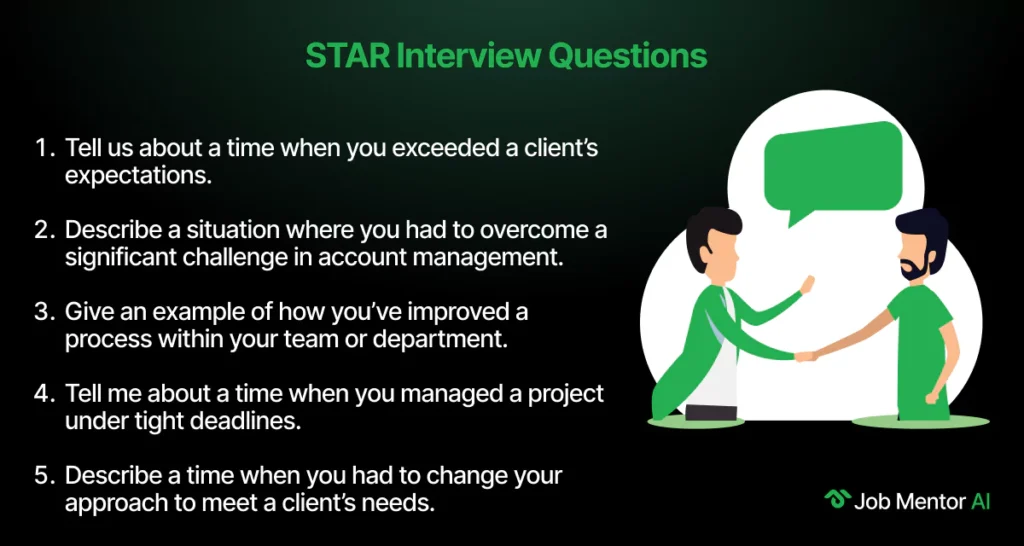
11. Tell us about a time when you exceeded a client’s expectations.
What Interviewers Want:
They want a clear example of your success.
Strong Answer:
“In a previous role, I worked with a client who wanted to increase their sales by 20% within 6 months. Through a tailored strategy, I implemented targeted marketing campaigns and regular feedback loops. As a result, we exceeded their goal by 10%, building trust and securing a long-term partnership.”
Poor Answer:
“I’ve always exceeded expectations.”
12. Describe a situation where you had to overcome a significant challenge in account management.
What Interviewers Want:
They want to see how you handle obstacles.
Strong Answer:
“I once inherited a client account that was struggling with a major product launch. I worked closely with the client and cross-functional teams to identify key issues and implement a more effective strategy. This helped the product launch successfully, and the client extended our contract for another year.”
Poor Answer:
“I’ve never faced a significant challenge.”
13. Give an example of how you’ve improved a process within your team or department.
What Interviewers Want:
They want to see your initiative and process improvement skills.
Strong Answer:
“I noticed that we were losing time on account reporting due to manual data entry. I introduced an automated system using CRM software, which reduced reporting time by 30%, allowing the team to focus more on strategy and client interaction.”
Poor Answer:
“I follow whatever processes are set for me.”
14. Tell me about a time when you managed a project under tight deadlines.
What Interviewers Want:
They want to see how you manage pressure and deadlines.
Strong Answer:
“During a product launch, I was tasked with managing multiple accounts with overlapping deadlines. I created a detailed project plan, delegated tasks, and kept constant communication with the team to ensure we hit all key milestones on time, delivering high-quality results.”
Poor Answer:
“I don’t really work well under pressure.”
15. Describe a time when you had to change your approach to meet a client’s needs.
What Interviewers Want:
They want to see your adaptability and client-first mindset.
Strong Answer:
“I was managing an account where the initial strategy wasn’t yielding the expected results. I listened to the client’s concerns, reassessed the plan, and shifted focus towards more targeted efforts. This change led to a significant improvement in their engagement and satisfaction.”
Poor Answer:
“I always do things my way.”
Behavioral and Situational Account Director Interview Questions
Behavioral and situational account director interview questions explore how candidates respond to difficult situations they might face as an Account Director. Interviewers want to understand how account directors handle pressure, resolve conflicts, and make tough decisions. Their answers will show us recruiters that they think on their feet and manage complex professional relationships.
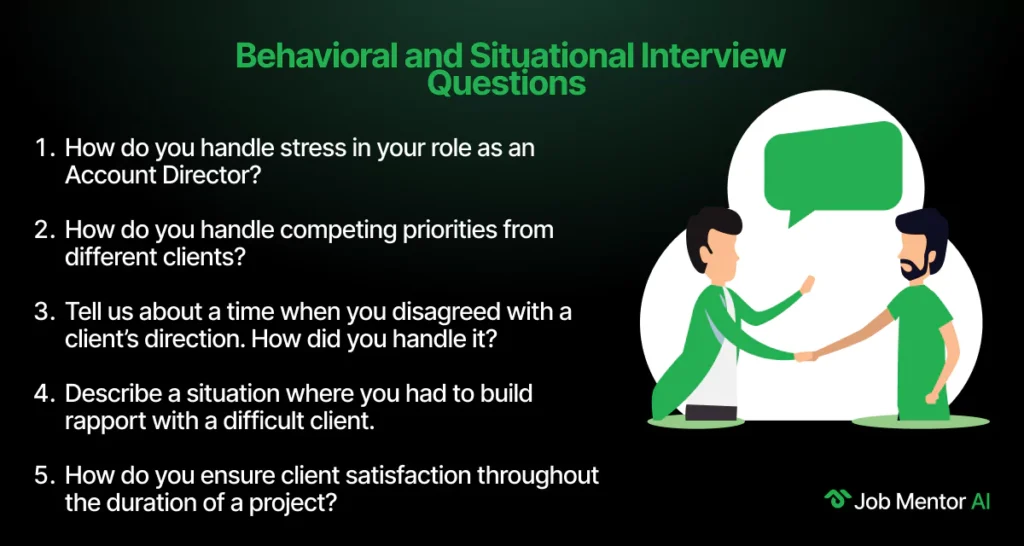
16. How do you handle stress in your role as an Account Director?
What Interviewers Want:
They want to assess your ability to stay calm under pressure.
Strong Answer:
“I handle stress by prioritizing tasks and focusing on what I can control. I also ensure to take short breaks to recharge and maintain a clear mind. Keeping an organized schedule and seeking support when needed helps me stay on top of my workload.”
Poor Answer:
“I don’t deal well with stress.”
17. How do you handle competing priorities from different clients?
What Interviewers Want:
They want to understand how you balance multiple accounts.
Strong Answer:
“I prioritize by assessing the urgency and impact of each request. I communicate clearly with clients about timelines and manage expectations to ensure that I meet their needs while maintaining the quality of service for all clients.”
Poor Answer:
“I just focus on the most demanding clients.”
18. Tell us about a time when you disagreed with a client’s direction. How did you handle it?
What Interviewers Want:
They want to know how you handle disagreements.
Strong Answer:
“I once disagreed with a client about a marketing strategy. I presented data and case studies to support my viewpoint, and together, we found a compromise that aligned with their goals. This open communication strengthened our relationship and led to better results.”
Poor Answer:
“I just agreed with the client to avoid conflict.”
19. Describe a situation where you had to build rapport with a difficult client.
What Interviewers Want:
They want to see your interpersonal skills.
Strong Answer:
“I had a client who was initially difficult to communicate with. I made an effort to understand their needs and consistently delivered on promises. By being reliable and transparent, I was able to build a positive relationship, eventually becoming their trusted advisor.”
Poor Answer:
“I don’t enjoy working with difficult clients.”
20. How do you ensure client satisfaction throughout the duration of a project?
What Interviewers Want:
They want to know how you maintain high standards.
Strong Answer:
“I schedule regular check-ins and updates with clients to ensure they’re happy with the progress. I also encourage feedback during key stages of the project, which helps me adjust and deliver exactly what the client wants, ensuring satisfaction throughout.”
Poor Answer:
“I just check in at the end of the project.”
Client Relationship Management Account Director Interview Questions
These questions focus on how account directors build and maintain strong client partnerships. Candidates should discuss their approach to understanding client needs, managing expectations, and developing long-term relationships. Their responses should show how they go beyond basic account management to create real value for clients.
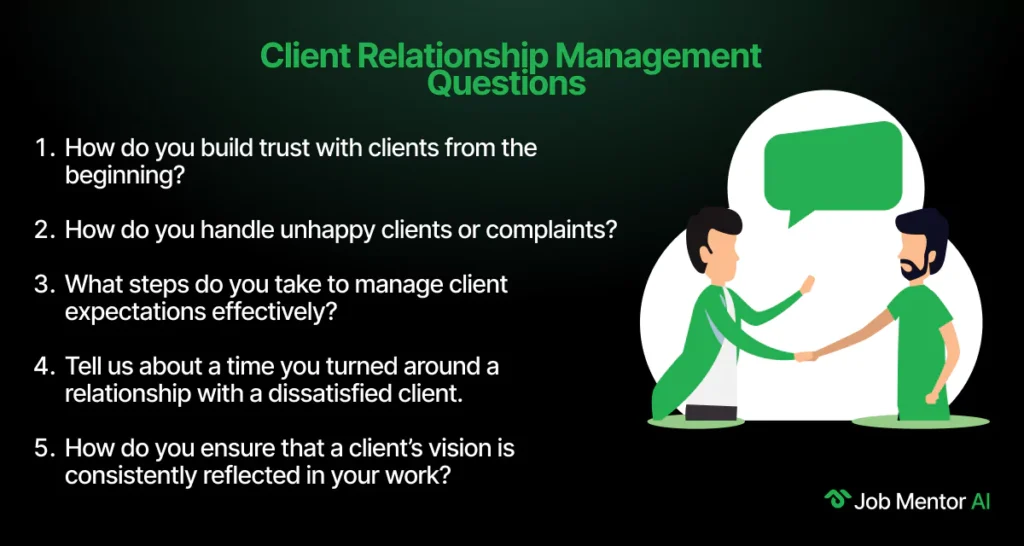
21. How do you build trust with clients from the beginning?
What Interviewers Want:
They want to understand how you foster strong, trusting relationships with clients.
Strong Answer:
“I build trust by being transparent and always delivering on promises. From the start, I listen carefully to their needs and keep communication clear and regular, ensuring they feel valued and confident in our partnership.”
Poor Answer:
“I just do what the client asks without much explanation.”
22. How do you handle unhappy clients or complaints?
What Interviewers Want:
They want to know how you manage conflict and dissatisfaction.
Strong Answer:
“I address complaints promptly and with empathy. I listen actively to the client’s concerns, take responsibility if necessary, and work collaboratively with them to resolve the issue. My goal is to not only fix the situation but also strengthen the relationship.”
Poor Answer:
“I avoid dealing with complaints whenever possible.”
23. What steps do you take to manage client expectations effectively?
What Interviewers Want:
They want to understand your approach to setting and maintaining clear expectations.
Strong Answer:
“I make sure to have clear and open communication from the start, setting realistic expectations based on the client’s needs and our capabilities. I regularly check in to ensure that they are on track and make adjustments when necessary.”
Poor Answer:
“I just do what I think is best and hope they’re okay with it.”
24. Tell us about a time you turned around a relationship with a dissatisfied client.
What Interviewers Want:
They want to see your problem-solving skills and ability to rebuild relationships.
Strong Answer:
“I once managed a client who was unhappy due to a delayed project. I acknowledged the issue, took responsibility, and worked closely with them to create a revised timeline. By offering them additional support and regular updates, we turned the relationship around, and they renewed their contract for another year.”
Poor Answer:
“I haven’t had to deal with dissatisfied clients.”
25. How do you ensure that a client’s vision is consistently reflected in your work?
What Interviewers Want:
They want to know how you stay aligned with client objectives.
Strong Answer:
“I keep the client’s vision at the core of all strategies and decisions. Regular check-ins ensure that we’re aligned, and I involve them in key decisions. If anything changes, I immediately adapt to ensure the work remains in line with their vision.”
Poor Answer:
“I just do what I’m told and hope it’s right.”
Communication and Collaboration Account Director Interview Questions
Effective communication is extremely important for every successful Account Director. These account director interview questions will explore how candidates facilitate collaboration between teams, align stakeholders, and ensure clear communication across all levels. Interviewers look for examples of how candidates bridged gaps between departments and kept complex projects on track.
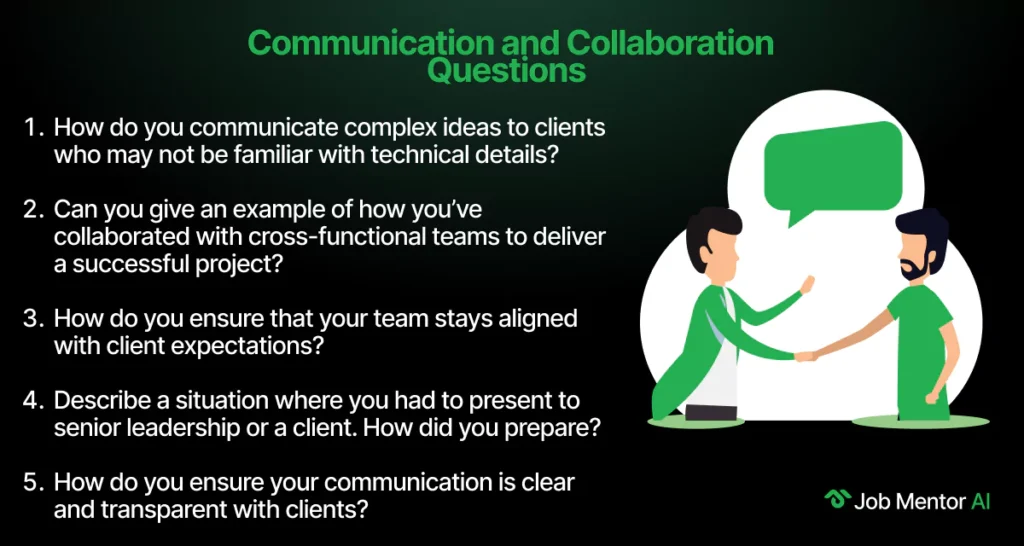
26. How do you communicate complex ideas to clients who may not be familiar with technical details?
What Interviewers Want:
They want to understand your ability to simplify technical information for non-experts.
Strong Answer:
“I focus on explaining complex ideas in simple terms, using analogies or visuals to make the information more relatable. I ensure the client feels confident and informed without overwhelming them with jargon.”
Poor Answer:
“I just tell them the technical details and hope they understand.”
27. Can you give an example of how you’ve collaborated with cross-functional teams to deliver a successful project?
What Interviewers Want:
They want to know how well you work with others to achieve goals.
Strong Answer:
“I collaborated with the marketing and design teams on a large client project. We held regular meetings to ensure alignment and worked together to integrate feedback. This collaborative approach led to a product launch that exceeded the client’s expectations.”
Poor Answer:
“I usually handle things on my own.”
28. How do you ensure that your team stays aligned with client expectations?
What Interviewers Want:
They want to understand your leadership and coordination skills.
Strong Answer:
“I ensure alignment by clearly communicating client expectations to the team, setting goals, and following up regularly. I encourage open communication within the team to address any concerns or adjustments needed to meet client goals.”
Poor Answer:
“I just expect the team to figure it out.”
29. Describe a situation where you had to present to senior leadership or a client. How did you prepare?
What Interviewers Want:
They want to know your approach to formal presentations.
Strong Answer:
“Before any presentation, I thoroughly research the client’s objectives, the audience’s concerns, and key data points. I ensure that my presentation is clear, focused on the client’s needs, and backed by relevant insights. Practice is key to delivering it smoothly and confidently.”
Poor Answer:
“I don’t really prepare much, I just present.”
30. How do you ensure your communication is clear and transparent with clients?
What Interviewers Want:
They want to see your commitment to effective communication.
Strong Answer:
“I prioritize transparency by being upfront about timelines, challenges, and progress. I encourage feedback and make sure to address any questions immediately. Regular updates ensure clients are always in the loop and feel confident in the process.”
Poor Answer:
“I try to be clear, but I don’t really focus too much on it.”
Strategic and Goal-Oriented Account Director Interview Questions
Strategic thinking separates great Account Directors from good ones. These strategic account director interview questions will assess how candidates set objectives, measure success, and adapt strategies to drive business growth. Interviewers pay attention to candidates’ ability to balance long-term vision with practical execution in their responses.
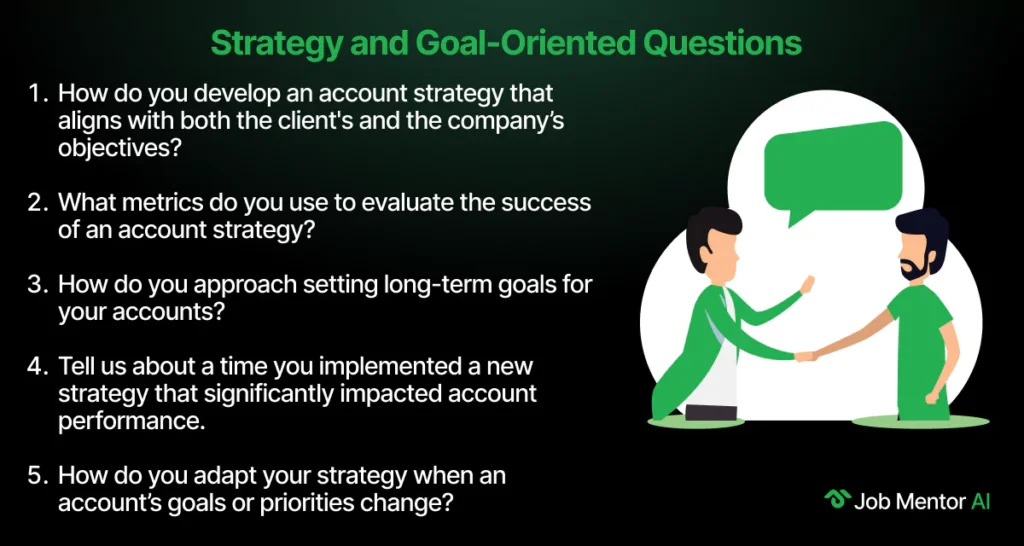
31. How do you develop an account strategy that aligns with both the client's and the company’s objectives?
What Interviewers Want:
They want to see your strategic thinking.
Strong Answer:
“I first work to understand both the client’s objectives and our company’s capabilities. Then, I develop a strategy that meets both needs. Regular checkpoints and adjustments ensure we stay aligned with shifting goals and continue to deliver value.”
Poor Answer:
“I just go with what the client wants.”
32. What metrics do you use to evaluate the success of an account strategy?
What Interviewers Want:
They want to understand how you measure success.
Strong Answer:
“I use a combination of KPIs such as client satisfaction, retention rates, revenue growth, and project completion timelines. These metrics help me track the success of an account strategy and identify areas for improvement.”
Poor Answer:
“I don’t really track metrics, I just go with the flow.”
33. How do you approach setting long-term goals for your accounts?
What Interviewers Want:
They want to understand your goal-setting process.
Strong Answer:
“I work closely with the client to understand their long-term vision and business goals. I break these into measurable, achievable milestones and ensure that we have the resources to meet these objectives over time.”
Poor Answer:
“I set goals when necessary, depending on what’s urgent.”
34. Tell us about a time you implemented a new strategy that significantly impacted account performance.
What Interviewers Want:
They want to hear about a successful implementation.
Strong Answer:
“In a previous role, I implemented a data-driven approach to optimize account performance. By using advanced analytics to refine our targeting, we saw a 25% increase in client engagement and exceeded sales targets within six months.”
Poor Answer:
“I haven’t really changed strategies much in my career.”
35. How do you adapt your strategy when an account’s goals or priorities change?
What Interviewers Want:
They want to see how you handle change.
Strong Answer:
“I proactively stay in close communication with the client to understand any changes in priorities. When necessary, I adjust the strategy by reallocating resources, revising timelines, and realigning goals to ensure we continue delivering the expected outcomes.”
Poor Answer:
“I just try to keep things the same unless the client insists.”
Enhance Your Interview Preparation with AI Interview Assistant
Preparing for interviews can feel overwhelming, but the right tools can make a big difference. An AI Interview Assistant helps you practice confidently by simulating real interview questions, offering instant feedback, and guiding you with expert suggestions. Whether you’re a fresh graduate or a seasoned professional, it’s a smart way to refine your answers and build confidence.
Boost your preparation today! Try our AI Questions and Answers Generator that provides role-based questions and sharpen your interview skills!
Top 35 Account Director Interview Questions You Must Prepare
Table of Contents
Recommended Resources
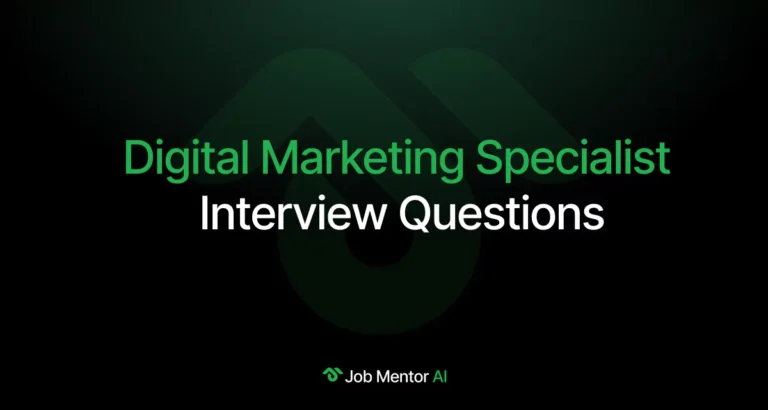
Digital Marketing Specialist Interview Questions
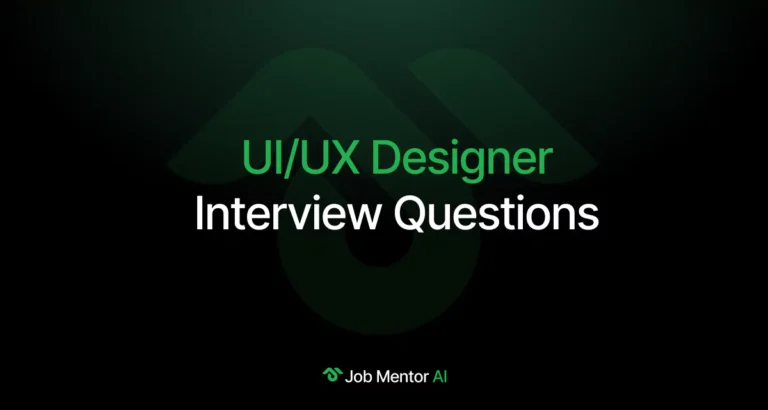
UI/UX Designer Interview Questions
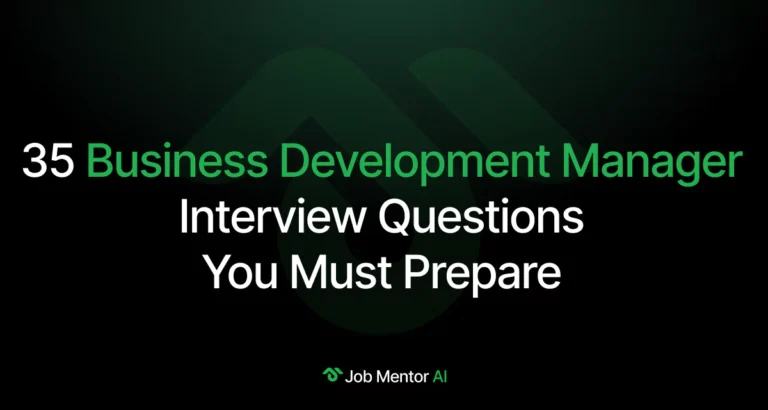
Business Development Manager
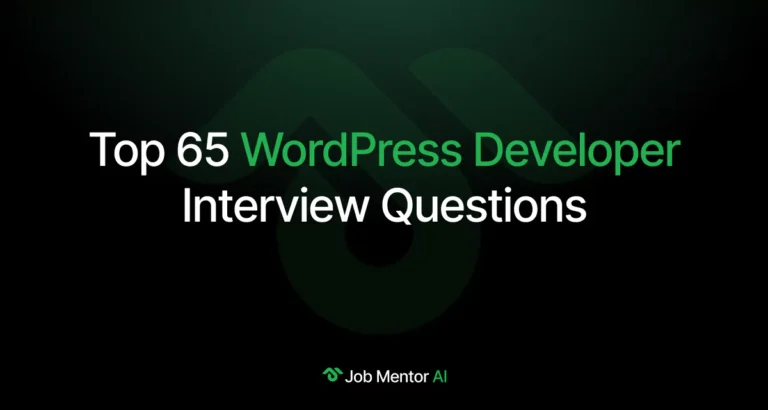
Top 65 WordPress Interview Questions and Answers 2025
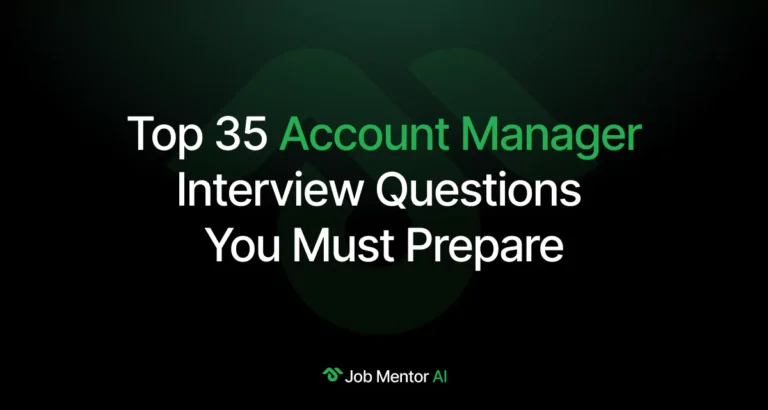
Top 35 Account Manager Interview Questions You Must Prepare
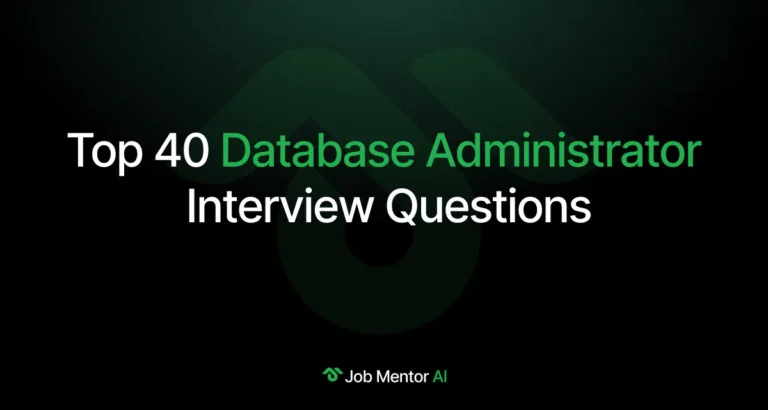
Top 40 Database Administrator Interview Questions
